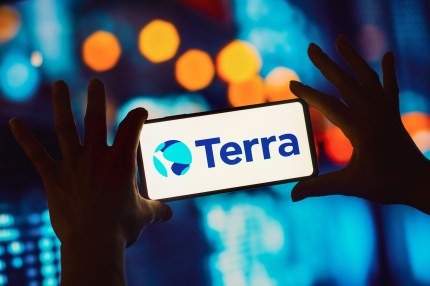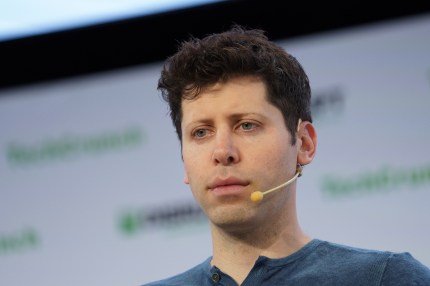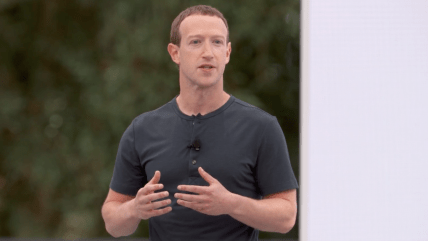Vox Media’s president, Pam Wasserstein, sent her staff a Slack message and an email on May 29 detailing what the company’s journalists say was shocking news: Vox had signed a content licensing deal with OpenAI.
The deal gives the AI company access to Vox’s current content, as well as the entire archive of its journalistic work, to train ChatGPT and other models. Wasserstein sent the alerts just moments before Axios published an exclusive detailing the licensing and product deal, much to the surprise of her journalists.
Writers at The Atlantic, which signed a similar deal with the Microsoft-backed AI giant, were also sent an email moments before the Axios piece went up.
“Atlantic staffers have largely learned of this agreement from outside sources, and both the company and OpenAI have refused to answer questions about the terms of the deal,” reads a May 30 statement from The Atlantic Union.
None of the current or former journalists at either company who TechCrunch interviewed had any inkling that their work would be handed over to OpenAI. All of them are concerned that their employers are making short-sighted deals that will ultimately harm writers and journalism as a whole.
Both Vox Media — which includes The Verge, New York, Eater, The Cut and more publications — and The Atlantic have published pieces that are critical of OpenAI and generative AI. They have aired concerns about the environmental impact of the power needed to run large language models, the board upheavals at OpenAI, and the “general lack of trustworthiness” in the company, said Amy McCarthy, a reporter at Eater and communications chair of Vox’s union.
Vox did not respond to a request for comment.
Since the deals were announced, journalists at each publisher have wrangled meetings with business-side higher-ups to learn more about the agreements, looking for one crucial piece of information: What’s in it for the journalists?
A sense of urgency
In the face of an increasing number of AI media deals, news guilds are now notching up the pace of negotiations to put in place AI protections similar to the ones Hollywood writing teams fought for.
“The Writers Guild and Vox Media Union are firmly of the opinion that implementation of AI is a mandatory subject of bargaining, even though our contracts may not explicitly have AI provisions,” McCarthy told TechCrunch. “We do have provisions in our contract that essentially mean that the company has to bargain with us over fundamental changes to our working conditions, and we very much believe this is a workplace issue, that it’s a working conditions issue, and that the company is obligated to bargain with us about how this will work.”
This means publishers that strike deals with AI providers might be contractually required to engage in discussions and negotiations with unions about these changes.
The Atlantic Media Union had also intended to bring this issue to the bargaining table, but the OpenAI deal adds a sense of urgency, one current employee told TechCrunch, requesting anonymity.
During negotiations this month, The Atlantic’s union put forward a proposal, per which AI wouldn’t be used to replace writing, fact-checking, copy editing and illustration. It also proposed that writers can use AI at their discretion, in accordance with journalistic principles and ethics, but they can’t be made to use it. That proposal is yet to be accepted.
Other unions are working to put in similar protections. Nebraska journalists at the Omaha World-Herald Guild secured protections from AI earlier this year. In 2023, after CNET published a series of AI-generated articles, journalists at the publication went public with their union drive, demanding AI protections and a say in how AI is implemented in employee workflows.
Making companies include such safeguards in journalists’ contracts is vital, because protection from the law isn’t guaranteed. Companies like OpenAI contend that they’re not breaking copyright laws by scraping what they say is publicly available content. They also say their chatbots don’t reproduce the material in its entirety.
But publications like The New York Times, Raw Story, AlterNet and The Intercept have all sued OpenAI for using copyrighted works by journalists to train ChatGPT without properly crediting or citing the sources. Novelists, computer programmers and other groups have also filed copyright suits against OpenAI and other companies building generative AI.
Richard Tofel, former president of nonprofit newsroom ProPublica and a consultant to news outlets, thinks these lawsuits will end up in the Supreme Court. If the courts rule that OpenAI and others are guilty of copyright infringement, “they’ll need to make a deal with everybody.”
Tofel thinks most publishers will end up making deals with AI companies. He noted that Google also faced similar copyright suits back when its search product was taking off, but by the time those were settled, users were so dependent on search that no publisher wanted to keep its content out of it.
McCarthy says writers can’t rely only on the courts: “We have to look at every potential avenue as a way to push back against AI implementation.”
Another concern for journalists is the adoption of AI by publishers for writing content, which some media outlets have already begun experimenting with.
CNET and Gannett have published AI-generated stories and art, and in the case of Sports Illustrated, under fabricated bylines. Those stories were called out as AI-generated mainly because they were riddled with factual errors, but if AI gets a free pass to train on good journalism, those obvious errors may decrease over time.
If journalists won’t question this, who will?
Journalists understand the basic structure of the deals, but they still have questions.
The Atlantic’s VP of communications, Anna Bross, said the company’s partnership positions it as a premium news source within OpenAI, similar to other publishers’ deals.
“The Atlantic’s articles will be discoverable within OpenAI’s products, including ChatGPT, and as a partner, The Atlantic will help to shape how news is surfaced and presented in future real-time discovery products,” Bross told TechCrunch. “The deal ensures guardrails and protections around how our content does appear within OpenAI’s products. … If an Atlantic article is surfaced in response to a query, there will be Atlantic branding and a link back to the article on our site.”
Bross noted that this is not a syndication license, meaning that OpenAI doesn’t have permission to reproduce The Atlantic’s articles or create similar reproductions of whole articles or lengthy excerpts.
However, Atlantic journalists are still waiting on their leadership to explain why such content doesn’t qualify as derivative work, which they would have the chance of being paid directly for. The Atlantic recently launched a new line of paperback books with the collected works of its writers, and it compensated the writers for those works, multiple sources told TechCrunch.
Bross noted that The Atlantic’s contract with OpenAI protects against the creation of a derivative work.
The Atlantic’s editorial staff brought up that topic at an all-hands meeting in mid-June, headed by the publication’s CEO Nick Thompson, and they learned that while ChatGPT will be getting access to their work, the edit team is otherwise “fairly insulated from it.”
In other words, there’s not an immediate threat of ChatGPT being used to write articles.
The financial terms of The Atlantic and Vox deals still elude journalists inside and outside the publications, but we know that The Atlantic’s is a two-year contract, and that both will include the use of OpenAI technology for building products and features. OpenAI says that its tech will not be used to mimic writers’ own voices.
News Corp, The Wall Street Journal’s parent company, has also signed a deal with OpenAI that’s reportedly worth more than $250 million over five years. Axel Springer, which runs Politico and Business Insider, has also joined hands with OpenAI in a deal reportedly worth tens of millions of euros.
Other media outlets that have already signed similar partnerships with OpenAI include Dotdash Meredith (publisher of People, Better Homes & Gardens, Allrecipes, Investopedia and more), The Associated Press, The Financial Times, Le Monde in France, and Prisa Media in Spain.
(We should also note that TechCrunch’s parent company, Yahoo, is also dabbling with AI via the Yahoo News app. It’s powered by the underlying code of the app Artifact, which Yahoo acquired in April.)
OpenAI claims its agreements will help journalists by driving traffic back to their articles, but that remains to be seen as the implementations aren’t yet live.
Tofel said that if users can ask an AI chatbot for the latest on the Israel-Hamas war, for example, it would present “the ultimate nightmare for the news companies.”
“They could be very significantly disintermediated by an AI news product,” he said.
OpenAI was not able to confirm specifics about the user experience design, which could determine how likely a reader is to click an external link to an article.
And if readers don’t have to go to a publisher’s website to read articles, its ad revenue will suffer — that’s something the news industry is already struggling with as Google and Meta have deprioritized news in their algorithms. Journalists and writers will have a smaller audience for their work as well.
Journalism is suffering from a lack of funding, mostly because tech giants like Meta and Google today rake in the lion’s share of digital ad revenue. Publishers will no doubt welcome a new revenue stream to augment their balance sheets.
But journalists are questioning whether this is the best way forward.
“It feels very much like a protection racket,” McCarthy said. “Like we made a deal with the guy who just robbed our house, and he’s pinky promising that he won’t rob the house.”
Some AI startups are already lifting content without striking any deals. For example, ChatGPT rival Perplexity is under fire from Forbes for plagiarism, and Wired recently found that the AI company was surreptitiously scraping its website. Despite these claims, Perplexity is gearing up to announce ad revenue sharing deals with publishers next week, the startup told TechCrunch.
Still, it looks like we can expect more deals like these in the future as publishers are all looking like they’ll come to the same conclusion: AI’s gonna steal our work anyway. Might as well get paid for it.
Correction: This story originally misstated how The Atlantic communicated to staff about the deal. A staff email was sent shortly before the public announcement. This story has also been updated to clarify that Atlantic writers are protected from OpenAI creating derivative work with their writing.






























Comment